A dental abscess may start as a minor soreness, but can quickly become a serious oral health emergency. Ignoring warning signs leads to severe pain, spreads the infection, and even causes tooth loss. Knowing the dental abscess warning signs you shouldn’t ignore to avoid complications will help you maintain better oral hygiene!
Tooth Abscesses Explained 🦷
A tooth abscess is a well of pus that forms in different parts of a tooth or gum due to a bacterial infection. The abscess can occur at the tip of the tooth’s root (periapical abscess), in the gums (periodontal abscess), or around the tooth itself (gingival abscess). These infections typically stem from untreated cavities, gum disease, or dental trauma.
Left untreated, the dental abscess will seep into surrounding tissues, leading to serious health complications, including damage to the jawbone, sinus infections, or even systemic illnesses like sepsis —a life-threatening condition caused by the body’s response to an untreated infection that injures tissue and organs.
Causes of Tooth Abscess
Several factors can contribute to the development of a tooth abscess. Common causes include:
- Poor oral hygiene: Poor brushing habits, not brushing at all, and not flossing allow plaque buildup, leading to tooth decay and gum infections.
- Untreated cavities: Cavities can penetrate deep into the tooth, reaching the pulp and allowing bacteria to infect the root.
- Gum disease: Periodontal disease causes the gums to pull away from the teeth, forming pockets where bacteria thrive.
- Dental trauma: Cracked or chipped teeth can expose the pulp to bacteria.
- Failed dental work: In rare cases, a previous filling or crown may not protect the tooth properly, allowing an infection to develop.
Tooth Abscess Symptoms
It is essential to recognize the symptoms of a tooth abscess early, as it can prevent further complications. Here are warning signs you shouldn’t ignore:
- Persistent, throbbing toothache: Pain that radiates to the jaw, neck, or ear.
- Swelling in the face or cheek: Caused by the accumulation of pus and inflammation.
- Sensitivity to hot and cold temperatures: This is especially prominent if the pain persists after exposure.
- Swollen, red gums: Particularly around the affected tooth.
- A foul taste in the mouth or unpleasant odor from your mouth: A sign that the abscess has ruptured.
- Fever: Indicates the infection is spreading.
- Difficulty swallowing or breathing: A serious sign that requires immediate medical attention.
How is a Tooth Abscess Treated?
If you’re wondering how to treat a tooth abscess, prompt dental care is essential. The severity and location of the abscess determine how it is treated and the type of treatment that will be used.
Treatment Methods:
- Drainage of the abscess: The dentist will make a small incision to release the pus, clean out the area, and relieve pressure.
- Root canal therapy: If the abscess is located in the root, a root canal may be necessary to remove the infected pulp and save the tooth.
- Tooth extraction: In some cases, where the tooth is damaged beyond saving, it may need to be removed.
- Antibiotics: If the infection spreads or the patient has a weakened immune system, antibiotics may be prescribed to treat the infection.
- Pain management: Over-the-counter pain relievers and warm saltwater rinses can help alleviate discomfort until dental care is provided. Do not use hydrogen peroxide unless a dentist prescribes it.
Early detection and proper dental treatment are the most effective ways to address a tooth abscess and avoid severe health risks.
Often, patients ask if they can purchase something over the counter to treat an abscess. The answer is no. Antibiotics can only be prescribed by the dentist. Remember to take all the antibiotics even if you are feeling better. Taking half the antibiotics and stopping will only make the abscess worse!
Who is at Risk for a Tooth Abscess?
Anyone can develop a tooth abscess, but some individuals are at a higher risk than others. Including but not limited to:
- People with poor dental hygiene habits
- Those with a diet high in sugar and refined carbohydrates
- Individuals with dry mouth (often caused by medications or aging)
- Smokers, who are more susceptible to gum disease
- People with diabetes, due to the higher risk of infections
- Patients with weakened immune systems, including those undergoing cancer treatments or living with autoimmune conditions
Recognizing personal risk factors can help you take preventive steps and recognize symptoms early.
Recommendations to Prevent Tooth Abscess
Prevention is key to avoiding dental abscesses. Here are essential tips to keep your teeth and gums healthy:
- Maintain good oral hygiene: Brush twice daily with fluoride toothpaste and floss daily.
- Visit your dentist regularly: Routine cleanings and exams help catch problems early.
- Limit sugary foods and drinks: Bacteria feed on sugar and produce acid that damages enamel.
- Use an antibacterial mouthwash: It helps reduce plaque and fight infection.
- Address dental issues promptly: Don’t ignore cavities, cracks, or gum inflammation.
- Stay hydrated: Drinking water helps promote saliva production, which in turn protects your teeth.
- Avoid tobacco products: Smoking increases the risk of gum disease and infection, as does chewing tobacco and snuff, which can be very irritating to the gums.
If you’re already experiencing symptoms of a tooth abscess, don’t delay seeking care. Immediate treatment can be the difference between saving and losing a tooth.
Bilingual Dental Care at Shtern Dental Clinic
At Shtern Dental Clinic, our dedicated team provides dental care tailored to your unique needs. We are committed to helping patients recognize and treat tooth abscesses and other dental emergencies before they become more severe. Our clinic proudly provides bilingual services in English and Spanish, ensuring clear communication and comfort for all our patients.
Whether you’re dealing with a dental emergency or simply due for a check-up, our modern technology and our team’s gentle approach will put you at ease. Visit our website at drmarkshtern.com to inquire about our services and schedule your appointment today.
- https://my.clevelandclinic.org/health/diseases/10943-abscessed-tooth
- https://www.mayoclinic.org/diseases-conditions/tooth-abscess/















